Description
ABSTRACT
Internal Whistleblowing Mechanisms in Nigeria’s Private Sector:Need for Legislative Intervention
Tope Adefemi Osuntogun*
Whistleblowing has been a topical issue in developed countries for over three decades and there has been a lot of controversy on issues such as the protection of whistle-blowers, the definition of a whistle-blower and types of misconduct that should qualify for whistleblowing. The vast literature on whistleblowing agrees that whistleblowing is an important tool for good corporate governance. However, there are arguments on whether internal reporting of misconduct by stakeholders should be referred to as whistleblowing. This paper argues in favour of the categorisation of internal reporting mechanism as a whistleblowing channel. It also advocates for an effective internal whistleblowing regime particularly for private organisations. This is because stakeholders often report misconduct to external reporting channels when the damage is too severe. Also, external whistleblowing channels are not always beneficial to private organisations because the success of most private organisations depends on public perception which eventually affects their share value. Hence, the damage caused to a private organisation as a result of bad publicity may be irreparable. The paper analysed the internal whistleblowing mechanisms in the CBN Guidelines for Whistleblowing for Banks and Other Financial Institutions in Nigeria, 2014, the Nigerian Code of Corporate Governance, 2018 and the Whistleblower Protection Bill. The paper recommends changes in the Nigerian Whistleblowing Bill by gleaning lessons from international best practices and good foreign domestic laws on whistleblowing.
Keywords: Whistleblowing, corporate governance, reporting channels
* LLB (Ife), BL, LLM (UI), GradICSA (UK). Lecturer, Faculty of Law, Ajayi Crowther University; Doctoral Candidate, Nelson Mandela University, Port-Elizabeth, South-Africa.

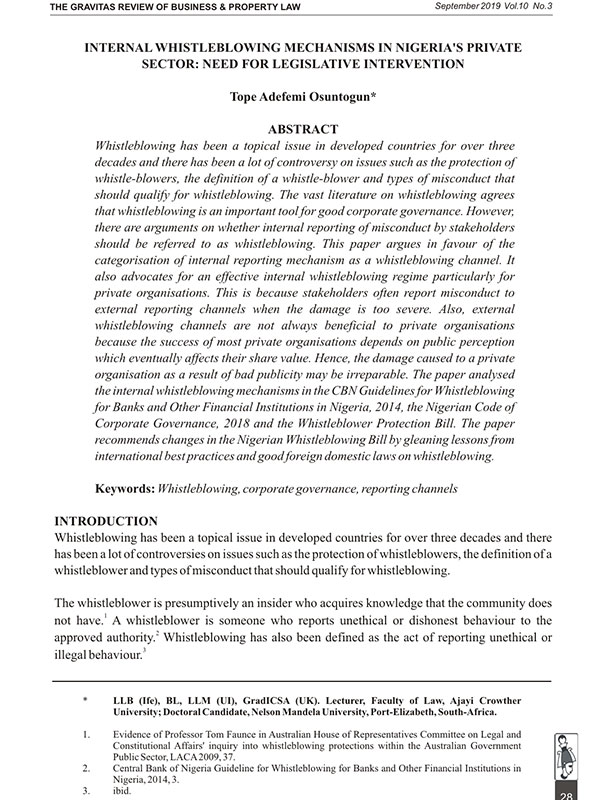
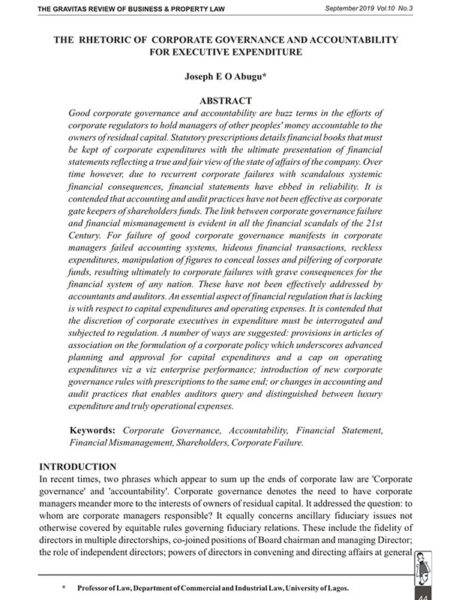
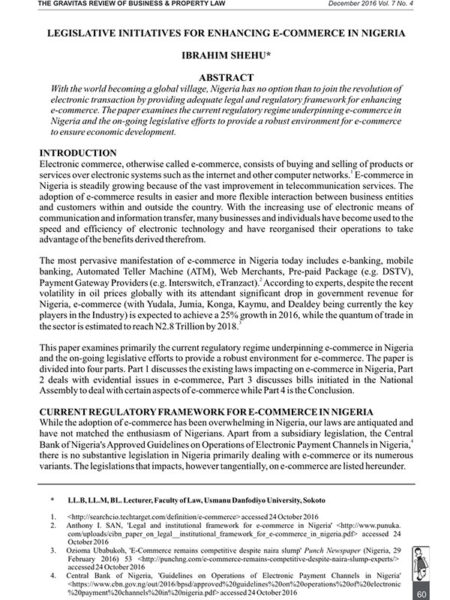
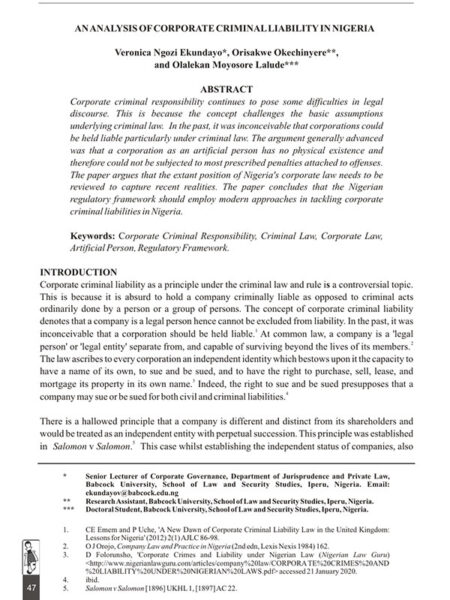
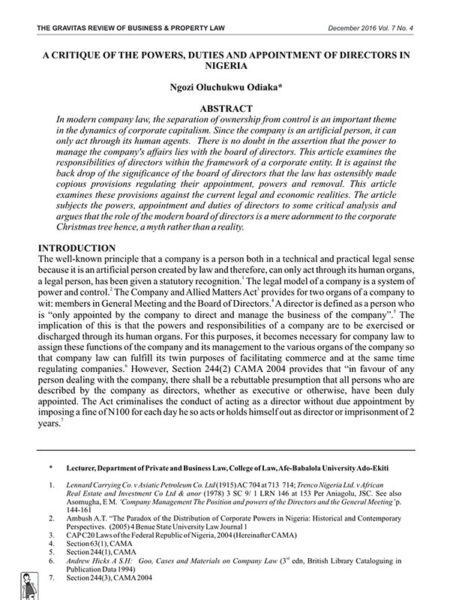


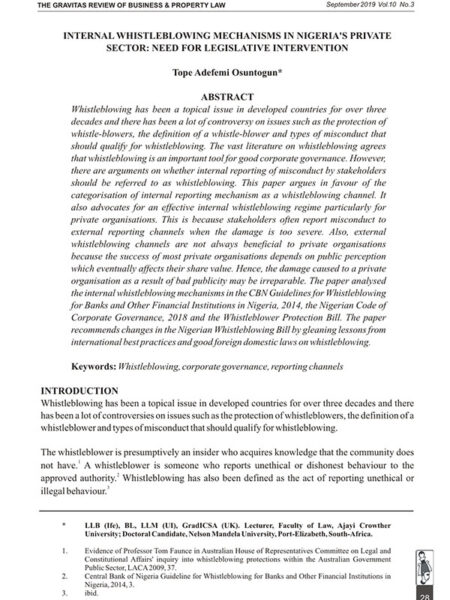
Reviews
There are no reviews yet.